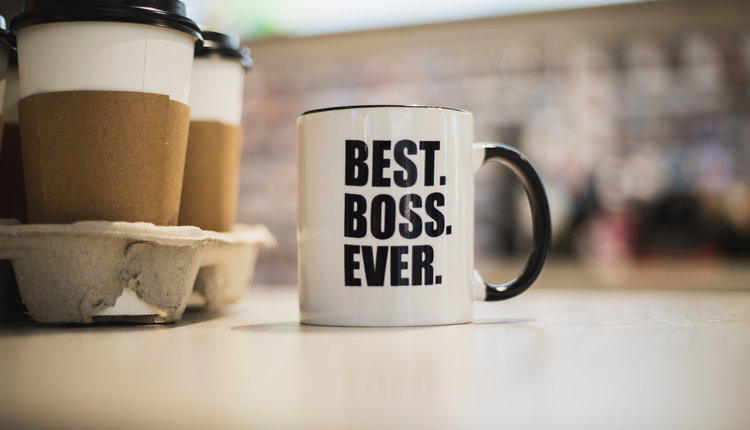This originally appeared in the September/October, 2018 issue of Mailing Systems Technology.
I am a card-carrying member of the Baby Boomer generation (defined as ages 54-72). Until fairly recently, Baby Boomers (i.e., Boomers) were the largest-sized generation in the history of our country, and we represented the majority of the workforce. Those days are gone. Boomers have been surpassed in numbers and workforce composition by the generation typically known as the Millennials.
Millennials not only are the largest generation working today, they are also starting to take over the key operational and leadership roles once held by Boomers. This trend has been accelerated by the retirement of an average of 10,000 Boomers every day! And with the unemployment rate at 50-year lows, it has become absolutely imperative the contributions of millenials are not only appreciated but maximized. In fact, many executives say the biggest challenge that organizations face is the attraction, retention, and motivation of Millennials, especially given the large on-going exodus of the Boomers.
So how do we attract, retain, and motivate this large and important generation of Millennials? Let's explore what the experts have to say about Millennials.
Millennial Characteristics and Values
Let me start by saying, I love Millenials! Both of my daughters and both my sons-in-law are Millennials. All of my departmental supervisors except one were Millennials; I hired them, they were all outstanding, and I was grateful to have them on the leadership team. What saddens me is to hear some of the negativity expressed about Millennials, often by my fellow Boomers. In my opinion, the Millennials bring a lot to the table, so let's examine what often makes them tick.
Of course, there is always a danger of unfair stereotyping any large group of people, because there are always individual exceptions. But based on multiple studies and surveys, researchers have identified some general characteristics that most Millennials tend to share.
Prefer to work collaboratively. Millennials are used to working in teams and seeking advice and working together with peers and mentors — in school, work and life situations.
Possess a "can-do" and make it happen attitude. Millennials have experienced the rapid growth in technology and seen amazing things happen in their lifetimes. This has led to a perspective that anything is doable, which can be stimulating to the work environment.
Desire more coaching and feedback. Millennials have been used to receiving feedback and coaching, and generally desire and appreciate it more than the prior generations.
Strong desire for appreciation and recognition. All generations desire being shown appreciation and receiving recognition, but Millennials have received more of it growing up and desire to receive on a regular basis in the workplace.
Digital and tech savvy; phone- and device-centric. It is well known that most Millenials are very digital and tech savvy, having grown up with and using smart phones, computers, and other digital devices their whole lives. One insightful survey found that 83% of Millennials sleep with a phone or device nearby so they don't miss out on messages.
Desire flexibility in the workplace and ability to be themselves. All generations appreciate flexibility in the workplace, but this is especially important for Millenials, as demonstrated by one survey which found that 46% said the workplace flexibility was the most important thing for them! Also, Millennials appreciate the ability to be themselves and not participate in the corporate gamesmanship and politics that Boomers have tended to participate in and live with.
Don't want to be bored; like hands on learning and rapid pace. Millennials like variety and challenge in the work, like to work quickly, and appreciate hands on learning. As an example, my oldest daughter left her first job after college in only eight months because she was bored and felt stagnated. She actually took a small pay cut to work for another organization which was going to give her more interesting work and additional learning and growth opportunities.
Want to know the why behind rules and procedures; want to have a voice. Millennials like to know the "why" behind the rules, and don't appreciate stupid rules that are unnecessarily limiting or otherwise not needed. Millenials also like to have a voice at the table, and the ability to ask questions and share their perspectives. In one non-profit board I sit on, we are intentionally recruiting a millennial to the board so that we can hear a millennial perspective as we provide strategic leadership to the organization (the board is now 100% comprised of Boomers).
Want organizations to make a positive difference in the world. Millenials want to work for organizations that care about more than just maximizing shareholder wealth. Millenials want to work for organizations that show care for customers and employees — and also seek the greater good of the community and world around them.
Willing to hop from job to job. Boomers often stay with the same job and organizations for extended periods of time, even if not really happy at the job. For example, one study showed that 40% of Boomers work with the same organization for 20 or more years. Another study showed that the Boomers average staying seven years at the same job, compared to Millennials staying an average of 1.5 to two years.
Desire true work-life balance. Many Millennials have grown up in divorced homes and seen their parents negatively impacted by unreasonable work stress and expectations. And for good reason, Millennials don't want to go through the same negative consequences, so they value true work-life balance.
Ten Tips for Working Well With Millennials
Following are some practical tips that can help us create conditions that motivate Millennials and help maximize their potential.
1) Provide opportunities to work collaboratively and on teams. Millennials work well with others and can be great team members that accomplish more that individuals working independently.
2) Be a coach and mentor, not merely a “boss.” Millennials appreciate having a positive, supportive relationship with their boss, and they value helpful feedback and encouragement.
3) Provide regular appreciation and recognition. Create regular opportunities for peer recognition as well as provide ongoing appreciation and recognition from the leadership team.
4) Leverage and encourage digital and technical expertise. Millennials can be a great resource to help us identify and implement digital improvements to our processes and how we work. Millennials can also be the best teachers to help others learn how to use technology well. Also, don’t prohibit the use of technology and social media — one survey showed that 56% of Millennials would turn down a job that denied them access to social networks.
5) Provide a flexible, fun, employee-centered workplace. Millennials want to enjoy their work and their workplace. They want to have as much flexibility on work hours, dress codes, and other elements of the work as reasonably possible. They also want to make friends at work and have opportunities to have some fun along the way.
6) Provide opportunities for learning and development. Millennials are sharp and quick learners, and they want to learn new things, develop their skill sets, and broaden their experiences and expertise.
7) Listen to the Millennial employee. Millennials have ideas and opinions and don’t take kindly to having their thoughts ignored. They possess valuable perspectives and insights that can add value to our decision-making and operations, so we need to invite them to share what they are thinking.
8) Emphasize the value-added by the organization. Communicate how the organization adds value to all of its stakeholders, including the broader community in which it does business. Consider team building times that include volunteering that helps other people (e.g. Habitat for Humanity or helping a food bank).
9) Support a life-work balance. Millennials are used to cramming their lives with multiple activities (such as playing on sports teams, working for multiple causes, and spending time with family and friends). They work hard but are not into the long work weeks practiced by many Boomers.
10) Encourage the Millennials’ “can-do” attitude. Millennials desire to make the world a better place, and they have much to offer to make the world (and our workplaces) better than they are today. Let's empower them to go for it!
Wes Friesen is a proven leader and developer of high performing teams and has extensive experience in both the corporate and non-profit worlds. He is also an accomplished university instructor and speaker and is the President of Solomon Training and Development, which provides leadership, management and team building training. His book, Your Team Can Soar! has 42 valuable lessons that will inspire you and give you practical pointers to help you — and your team — soar to new heights of performance.










